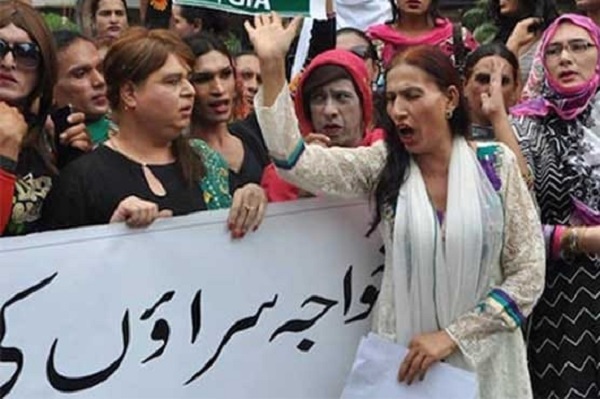Islamabad, (Samajweekly) Pakistans Council of Islamic Ideology (CII) has slammed the �guru culture in the transgender community and has termed it as a lethal form of exploitation and neo-slavery.
In a statement, CII chair Qibla Ayaz said that “guru culture was against human rights and it should not be part of any act or rules to be framed for non-binary gender people”.
“I urge parents to take ownership of their non-binary gender children. The government should also set up rehabilitation centres to bring these people in the mainstream of the social spectrum,” he said.
“Health experts have confirmed this that non-binary gender people could be operated upon at every stage of life including childhood, or after attaining the age of youth or adulthood, in the light of modern medical science, transforming them into normal and productive citizens of the society except in a few cases.”
Referring to the identity of a transgender and demands of acknowledgment as a third gender, Ayaz said that the “self-perceived identity, in the perspective of Islam, was contrary to the teachings of Shariah and it could be a source of many unexpected issues in the future”.
“The provision of self-perceived identity must be abrogated from any act or rules,” he said.
Ayaz also opposed the word “transgender”, stating that the word was wrongly defined in the Transgender Persons (Rights of Protection) Rules, highlighting that it included those people who did not fall in their category.
“The word transgender should be replaced with intersex, because it was the umbrella term for that particular segment of the society,” he said.
The CII had previously opposed the Transgender Persons (Rights of Protection) Act in Parliament, stating that amendments should be incorporated in the law, as it maintained that many provisions and clauses did not fall in compatibility with the Shariah.
The 2018 Act for transgender persons defined their gender identity and prohibited discrimination against them.
The law ensured issuing of certificate of identity to transgender persons and provided that no establishment shall discriminate against them in matters relating to employment, recruitment, promotion and other related issues. It also provided for grievance redressal mechanism for the community in each establishment.
However, upon request for recommendations by the CII before approval of the bill by Parliament, it was countered by the CII, which raised questions and concerns over several provisions of the legislation.










